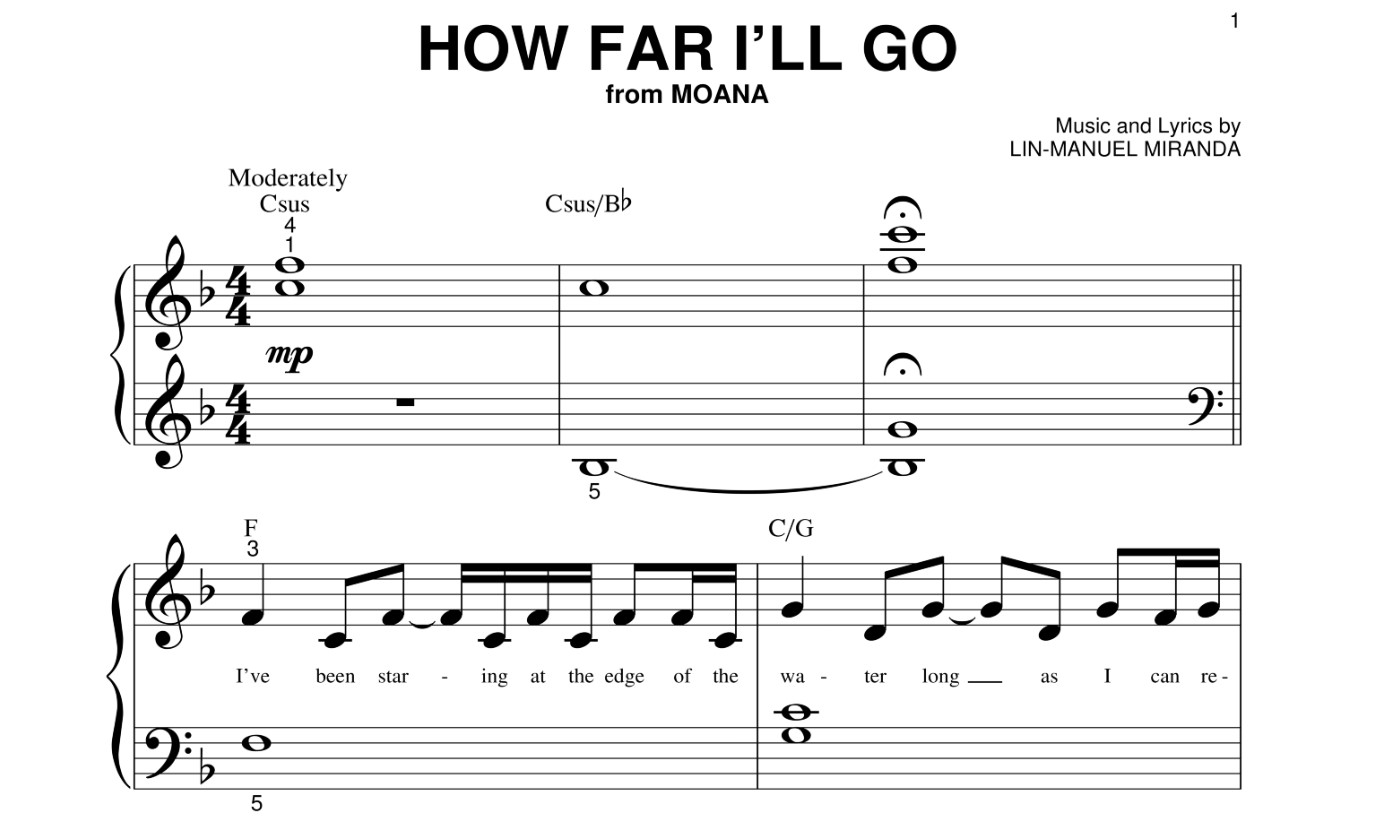Home>Events & Info>Music Therapy>How Long Do I Have To Go To School For Music Therapy


Music Therapy
How Long Do I Have To Go To School For Music Therapy
Modified: February 2, 2024
Discover the duration of music therapy education and training. Uncover how long it takes to become a certified music therapist and embark on a fulfilling career in this healing profession.
(Many of the links in this article redirect to a specific reviewed product. Your purchase of these products through affiliate links helps to generate commission for AudioLover.com, at no extra cost. Learn more)
Table of Contents
- Introduction
- Overview of Music Therapy
- The Role of Education in Music Therapy
- Required Education for Music Therapists
- Bachelor’s Degree Programs in Music Therapy
- Master’s Degree Programs in Music Therapy
- Doctoral Programs in Music Therapy
- Certification and Licensure in Music Therapy
- Continuing Education in Music Therapy
- Conclusion
Introduction
Music has long been recognized as a powerful tool for human expression and healing. It has the ability to evoke emotions, stimulate memories, and bring people together. In recent years, the field of music therapy has emerged as a distinct discipline that utilizes the therapeutic benefits of music to improve the physical, emotional, cognitive, and social well-being of individuals.
In this article, we will explore the world of music therapy and the role that education plays in becoming a music therapist. Whether you have a personal interest in pursuing a career in music therapy or simply want to learn more about this fascinating field, this article will provide you with valuable insights.
Music therapy is a holistic approach to healing that considers the individual’s physical, emotional, mental, and spiritual needs. It involves using music interventions, such as listening to music, playing instruments, singing, and composing, to address a wide range of therapeutic goals. These goals can include improving communication skills, enhancing self-expression, reducing anxiety and stress, promoting relaxation, and facilitating emotional release.
Music therapists work with a diverse range of populations, including children and adults with developmental disabilities, individuals with mental health issues, patients in hospitals and rehabilitation centers, elderly adults with dementia, and those dealing with chronic pain or other medical conditions. The versatility of music therapy allows it to be adapted to meet the unique needs and preferences of each individual.
Becoming a music therapist requires a combination of musical skills, clinical knowledge, and therapeutic techniques. Music therapists are highly trained professionals who possess in-depth knowledge of music theory, psychology, human development, and therapeutic approaches. They undergo rigorous education and training to develop the necessary competencies and ethical standards to practice effectively and ethically.
Overview of Music Therapy
Music therapy is a specialized field that harnesses the power of music to improve the well-being of individuals. It is based on the understanding that music has the ability to engage the brain, evoke emotions, and create a therapeutic relationship between the music therapist and the client. Music therapy sessions are structured and tailored to address specific goals and objectives determined by the client’s needs.
One of the key principles of music therapy is the idea that music can access emotions and memories that may otherwise be difficult to express verbally. This makes it particularly effective for individuals who struggle with communication or have experienced trauma. Through a variety of music-based interventions, music therapists create a safe and supportive environment where clients can explore their emotions, improve their communication skills, and work towards personal growth and healing.
Music therapy interventions can take many forms, depending on the client’s needs and preferences. These may include listening to music, playing instruments, singing, songwriting, improvisation, and movement to music. The therapist works closely with the client to determine the most appropriate interventions and techniques to achieve the desired outcomes.
Research has shown that music therapy can have a wide range of benefits across different populations. For example, in children with autism spectrum disorder, music therapy has been found to enhance social skills, improve communication, and promote emotional regulation. In individuals with depression and anxiety, music therapy has been shown to reduce symptoms and improve overall well-being. Music therapy has also been used successfully in pain management, rehabilitation, and end-of-life care.
It is important to note that music therapy is not a substitute for other forms of therapy or medical treatments. Instead, it is used as an adjunctive therapy to complement existing treatments and enhance the overall therapeutic experience. Music therapists often work collaboratively with other healthcare professionals, such as psychologists, physicians, and occupational therapists, to provide comprehensive care to their clients.
Overall, music therapy offers a unique and powerful approach to healing and self-expression. It taps into the universal language of music to create meaningful connections and facilitate positive changes in the lives of individuals. Whether it is helping a child with developmental delays reach their full potential or supporting a person with dementia in reconnecting with their memories, music therapy has the ability to make a profound impact.
The Role of Education in Music Therapy
Education plays a critical role in shaping competent and skilled music therapists. It provides aspiring professionals with the knowledge, skills, and clinical training necessary to effectively implement music therapy interventions and work with diverse populations.
To become a qualified music therapist, individuals must first complete a comprehensive education program that meets the standards set by the American Music Therapy Association (AMTA). These programs are typically offered at universities and colleges and are designed to provide students with a strong foundation in music, psychology, and therapeutic techniques.
The education requirements for music therapy vary depending on the desired level of practice. The minimum requirement to become a music therapist is a bachelor’s degree in music therapy. This degree program combines coursework in music theory, psychology, human anatomy, and music therapy methods and techniques.
During their training, students in music therapy programs participate in supervised clinical experiences. These experiences provide opportunities to work with clients under the guidance of experienced music therapists. This hands-on experience is invaluable in applying theoretical knowledge and developing practical skills in real-world therapeutic settings.
For individuals who wish to further specialize in music therapy or advance their career opportunities, pursuing a master’s or doctoral degree in music therapy is recommended. These advanced degree programs delve deeper into research, advanced clinical skills, and specialized areas of music therapy practice.
In addition to formal education, music therapists are encouraged to engage in continuing education to stay updated on the latest advancements and best practices in the field. This may include attending workshops, conferences, and seminars, as well as pursuing additional certifications and specialized training in specific areas of music therapy.
Overall, through a combination of education, clinical training, and continuing professional development, music therapists acquire the necessary skills and knowledge to effectively use music as a therapeutic tool. This comprehensive education equips them to meet the diverse needs of their clients and work across various settings, including schools, hospitals, mental health facilities, and private practice.
The field of music therapy is constantly evolving, and ongoing education is vital to staying informed about new research, emerging techniques, and ethical considerations. By continuously expanding their knowledge and skills, music therapists can provide the best possible care to their clients and contribute to the advancement of the profession as a whole.
Required Education for Music Therapists
Becoming a music therapist requires a combination of musical proficiency, clinical skills, and a solid understanding of human psychology. Aspiring music therapists must complete a specific educational program that meets the requirements set by the American Music Therapy Association (AMTA).
The minimum educational requirement to become a music therapist is a bachelor’s degree in music therapy from an accredited university or college. These programs typically consist of a combination of music, psychology, and music therapy coursework. Students learn about music theory, music composition and performance, human development, psychology, and research methodology.
In addition to music-related coursework, students in music therapy programs also receive training in clinical skills and therapy techniques. This includes learning how to assess clients’ needs, develop treatment plans, implement therapeutic interventions, and evaluate the effectiveness of music therapy interventions. Clinical fieldwork is an essential component of music therapy education, providing students with practical experience and supervised opportunities to work with clients in various clinical settings.
After completing a bachelor’s degree, individuals can pursue further education at the graduate level. Master’s and doctoral degree programs in music therapy offer advanced coursework and research opportunities for individuals looking to deepen their understanding of music therapy principles and specialize in a particular area of practice.
It is worth noting that music therapy programs also require students to demonstrate musical competency. This includes proficiency in playing a variety of musical instruments, vocal skills, and the ability to read sheet music. These musical skills are essential for effectively utilizing music as a therapeutic tool and engaging clients in meaningful musical experiences.
In addition to the educational requirements, aspiring music therapists must also complete a clinical internship to gain hands-on experience in the field. The internship is typically a full-time, supervised experience that lasts for a specified period, often six to nine months. During the internship, students work with clients and receive mentorship from experienced music therapists, allowing them to put their knowledge into practice and develop their clinical skills.
Upon completion of the required education and clinical internship, individuals can apply for national certification through the Certification Board for Music Therapists (CBMT). This voluntary certification is highly regarded in the field and demonstrates a music therapist’s competence and adherence to professional standards.
Overall, the required education for music therapists provides a comprehensive foundation in music, psychology, and therapeutic techniques. It equips aspiring professionals with the theoretical knowledge, clinical skills, and practical experience needed to effectively use music as a therapeutic tool and make a positive impact in the lives of their clients.
Bachelor’s Degree Programs in Music Therapy
Bachelor’s degree programs in music therapy provide students with a comprehensive education in music, psychology, and therapeutic techniques. These programs are designed to equip students with the necessary knowledge and skills to become competent and effective music therapists.
Typically, a bachelor’s degree program in music therapy lasts for four years and combines coursework in music, psychology, and music therapy. Students receive a strong foundation in music theory, music history, composition, and performance. They learn to play various musical instruments, develop vocal skills, and understand how to read and interpret sheet music.
In addition to music courses, students in music therapy programs also take psychology and human development classes. These provide a deeper understanding of the psychological and emotional aspects of music therapy and the therapeutic process. Students learn about human behavior, mental health disorders, and counseling techniques, which are fundamental in working with clients in a therapeutic setting.
One of the distinguishing features of a bachelor’s degree program in music therapy is the inclusion of music therapy-specific coursework. Students learn about the principles and techniques of music therapy, including assessment and treatment planning, improvisation, songwriting, and therapeutic interventions. They gain a solid understanding of how to use music to address various therapeutic goals and work with diverse populations.
Fieldwork and clinical experiences are also integral components of bachelor’s degree programs in music therapy. Students participate in supervised clinical placements, where they have the opportunity to apply their knowledge and skills in a real-world setting. They work with clients under the guidance of experienced music therapists, gaining practical experience and developing their clinical competencies.
Upon completion of a bachelor’s degree in music therapy, students are well-prepared to pursue careers in a variety of settings. They can work in hospitals, rehabilitation centers, schools, mental health clinics, and community organizations. Music therapists are equipped to work with individuals with developmental disabilities, mental health conditions, neurological disorders, and physical impairments.
It is important to note that the requirements for bachelor’s degree programs in music therapy can vary from one institution to another. Some programs may have specific prerequisites or additional requirements, such as an audition or an interview. Prospective students are encouraged to research and carefully review the admission criteria of the programs they are interested in.
Overall, bachelor’s degree programs in music therapy offer a comprehensive curriculum that combines music, psychology, and therapeutic techniques. They provide students with the knowledge, skills, and clinical experience necessary to become competent and compassionate music therapists, equipped to make a positive impact in the lives of their clients through the power of music.
Master’s Degree Programs in Music Therapy
Master’s degree programs in music therapy offer advanced coursework and specialized training for individuals who have already obtained a bachelor’s degree in music therapy or a related field. These programs provide in-depth study and research opportunities, allowing students to deepen their understanding of music therapy principles and expand their clinical skills.
Master’s degree programs in music therapy typically last for two to three years, depending on the institution and the specific program. The curriculum builds upon the foundational knowledge acquired during the bachelor’s degree and delves into more specialized areas of music therapy practice. Students engage in advanced coursework and research, developing critical thinking skills and a deeper understanding of the theoretical underpinnings of music therapy.
One of the key components of master’s degree programs in music therapy is the emphasis on research. Students are trained in research methodologies, data analysis, and scholarly writing. They have the opportunity to conduct their own research studies, exploring topics of interest in the field of music therapy and contributing to the growing body of knowledge in the profession.
In addition to research, master’s degree programs in music therapy often include specialized coursework in areas such as advanced clinical skills, specialized populations, and therapeutic approaches. Students may have the option to choose electives that align with their specific interests, such as music therapy in palliative care, neurologic music therapy, or music therapy for trauma survivors.
Clinical practicum experiences are also a vital part of master’s degree programs in music therapy. Students continue to gain hands-on experience working with clients under the supervision of experienced music therapists. These practicum placements allow students to further develop their clinical skills, refine their therapeutic approaches, and gain confidence in their abilities as music therapists.
For individuals looking to advance their careers or specialize in a specific area of music therapy practice, a master’s degree can provide a competitive edge. It can open up opportunities for leadership roles, supervisory positions, and research positions within the field of music therapy. Additionally, some states may require a master’s degree in music therapy for licensure as a music therapist.
Prospective students interested in pursuing a master’s degree in music therapy should carefully research the specific program requirements, admission criteria, and faculty expertise. It can be beneficial to connect with faculty members or professionals in the field to gain a better understanding of the program’s focus and alignment with individual career goals.
Overall, master’s degree programs in music therapy offer a rigorous and specialized education for individuals seeking to enhance their knowledge and skills in the field. They provide the opportunity for advanced study, research, and clinical training, preparing graduates for leadership roles and specialized practice in the dynamic and evolving field of music therapy.
Doctoral Programs in Music Therapy
Doctoral programs in music therapy are designed for individuals who wish to pursue advanced study, research, and leadership roles within the field. These programs offer the highest level of education and training in music therapy, equipping students with the knowledge and skills to become experts in the profession.
Doctoral programs in music therapy typically require a master’s degree in music therapy or a related field as a prerequisite for admission. The curriculum of these programs varies but often includes coursework in advanced research methodologies, theory development, and ethics in music therapy.
One of the defining features of doctoral programs in music therapy is the emphasis on research and scholarship. Students are exposed to advanced research methodologies and engage in their own original research projects that advance the knowledge and understanding of music therapy. They are encouraged to contribute to the field through scholarly publications, presentations at conferences, and participation in research collaborations.
Doctoral programs in music therapy also provide opportunities for specialized study and exploration of specific areas of interest. Students often have the flexibility to tailor their coursework and research to align with their research interests or career goals. Advanced clinical training and supervision are also typically included, allowing students to enhance their clinical skills and become well-rounded practitioners.
For many individuals, a doctoral degree in music therapy serves as a gateway to academic and leadership positions within the field. Graduates of these programs may go on to pursue careers as professors, researchers, program administrators, or consultants. They contribute to the field through teaching, mentoring future music therapists, and conducting groundbreaking research that shapes the future of music therapy practice.
Doctoral programs in music therapy also provide a platform for collaboration and networking with other professionals in the field. Students have the opportunity to work closely with faculty members who are experts in various areas of music therapy, benefiting from their knowledge and experiences. Collaboration with peers within the program and across different institutions can lead to valuable partnerships and professional connections.
While a doctoral degree in music therapy is not a requirement to practice as a music therapist, it offers advanced knowledge and expertise that can elevate one’s career and contribute to the advancement of the field. Individuals interested in pursuing a doctoral degree in music therapy should carefully research different programs, their faculty, and areas of specialization to ensure alignment with their research interests and career goals.
Overall, doctoral programs in music therapy provide an immersive and scholarly educational experience that prepares individuals to make significant contributions to the field. With a focus on research, advanced clinical training, and leadership development, these programs foster the growth of experts who further expand the knowledge and impact of music therapy.
Certification and Licensure in Music Therapy
Certification and licensure play an important role in ensuring the competency and ethical practice of music therapists. They provide a level of assurance to clients, employers, and the public that the music therapist has met specific standards of education, clinical training, and professional conduct.
In the United States, the Certification Board for Music Therapists (CBMT) is the organization responsible for certifying music therapists. Certification as a music therapist is a voluntary process that can be obtained after completing the required education and clinical training. To be eligible for certification, individuals must have graduated from a music therapy program approved by the American Music Therapy Association (AMTA) and have completed a minimum number of clinical hours.
The CBMT offers the Music Therapist-Board Certified (MT-BC) credential to individuals who successfully pass a national board certification examination. This examination assesses the individual’s knowledge and competence in various areas of music therapy, including assessment, treatment planning, therapeutic interventions, and professional ethics.
Once certified, music therapists are required to maintain their certification through the completion of continuing education credits. This ensures that they stay updated on the latest research, best practices, and ethical considerations in the field of music therapy. Continuing education requirements vary by certification board and country.
While certification is voluntary, it is widely recognized as a mark of professionalism and competence in the field of music therapy. Many employers, healthcare settings, and insurance companies require certification as a condition of employment or reimbursement for music therapy services.
In addition to certification, some states in the United States also require licensure to practice as a music therapist. Licensure is a legal requirement that grants individuals the authority to practice within a specific jurisdiction. The criteria for licensure vary by state but typically include the completion of specific education and clinical training requirements, passing a licensing examination, and meeting any state-specific regulations.
Licensure offers an additional level of protection for the public by ensuring that music therapists meet specific standards of practice. It also allows for greater recognition and reimbursement for music therapy services by insurance providers. It is important for music therapists to familiarize themselves with the licensure requirements specific to the state in which they intend to practice.
Overall, certification and licensure demonstrate a music therapist’s commitment to professional excellence and ethical practice. They provide a level of confidence and accountability to clients and the broader healthcare community. By meeting these requirements, music therapists can practice with confidence, knowing they have achieved a recognized standard of competency and professionalism in the field of music therapy.
Continuing Education in Music Therapy
Continuing education is an integral part of maintaining professional competence and staying current in the evolving field of music therapy. As the field advances and new research emerges, music therapists are expected to engage in ongoing learning and professional development to enhance their skills and knowledge.
Continuing education in music therapy can take various forms, including workshops, conferences, seminars, webinars, and online courses. These opportunities provide music therapists with the chance to explore new therapeutic techniques, learn about innovative research findings, and expand their clinical skills.
There are several benefits to participating in continuing education as a music therapist. Firstly, it allows therapists to stay updated on the latest research and evidence-based practices in the field. This ensures that they are providing the most effective and current forms of treatment to their clients.
Continuing education also offers opportunities for professional networking and collaboration. Music therapists can connect with colleagues, share knowledge and experiences, and build a supportive professional network within the music therapy community. Collaboration and networking can foster growth, inspire new ideas, and lead to valuable partnerships in research or clinical practice.
Furthermore, continuing education can help music therapists to explore specialized areas of interest. They can choose to attend workshops or conferences that focus on specific populations, techniques, or applications of music therapy. Specialized training allows therapists to better serve the unique needs of diverse populations and further develop their expertise in specific areas.
Continuing education requirements for music therapists vary depending on the country, state, or certifying organization. Some organizations require a specific number of continuing education credits or hours within a certain time frame to maintain certification. These requirements ensure that music therapists are continuously updating their knowledge and skills to provide the highest level of care to their clients.
Continuing education opportunities can be found through professional organizations such as the American Music Therapy Association (AMTA), regional music therapy associations, and other reputable sources. These organizations often offer their own workshops, webinars, and conferences, as well as information on approved continuing education providers.
It is essential for music therapists to carefully select continuing education opportunities that align with their professional goals and interests. They should consider the relevance of the content, quality of the presenter or institution, and the potential to apply the new knowledge and skills in their practice.
Overall, continuing education is an essential aspect of professional growth and development in music therapy. By actively engaging in ongoing learning and staying abreast of current research and best practices, music therapists can continue to provide exceptional care to their clients, expand their skills, and contribute to the advancement of the field.
Conclusion
Music therapy is a powerful and transformative discipline that utilizes the therapeutic benefits of music to improve the physical, emotional, cognitive, and social well-being of individuals. The field of music therapy continues to grow and evolve, providing opportunities for individuals with a passion for music and a desire to help others to make a meaningful impact in the lives of their clients.
Education plays a vital role in shaping competent and skilled music therapists. Bachelor’s degree programs provide a strong foundation in music, psychology, and therapeutic techniques, while master’s and doctoral programs offer advanced study, research opportunities, and specialized training.
Certification and licensure provide professional recognition and ensure that music therapists meet the standards of education, clinical training, and ethical conduct. Continuing education opportunities allow music therapists to stay updated on the latest research and therapy approaches, expand their skills, and connect with peers in the field.
As the field of music therapy continues to advance, it is vital for aspiring and practicing music therapists to embrace a lifelong commitment to learning and growth. Through continuous education and staying informed about new research and best practices, music therapists can provide the highest quality of care to their clients and contribute to the ongoing development of the field.
Whether you are interested in pursuing a career in music therapy or simply want to learn more about this fascinating field, the knowledge and skills acquired through education and ongoing professional development will provide a solid foundation for making a positive impact. Music therapy has the power to heal, uplift, and create lasting change, and through education and dedication, you can become a trusted and effective music therapist.
Remember, the journey to becoming a music therapist is not only about acquiring knowledge and skills but also about connecting with individuals through the universal language of music. Embrace your passion for music and the desire to make a difference, and embark on this extraordinary path towards becoming a music therapist.











